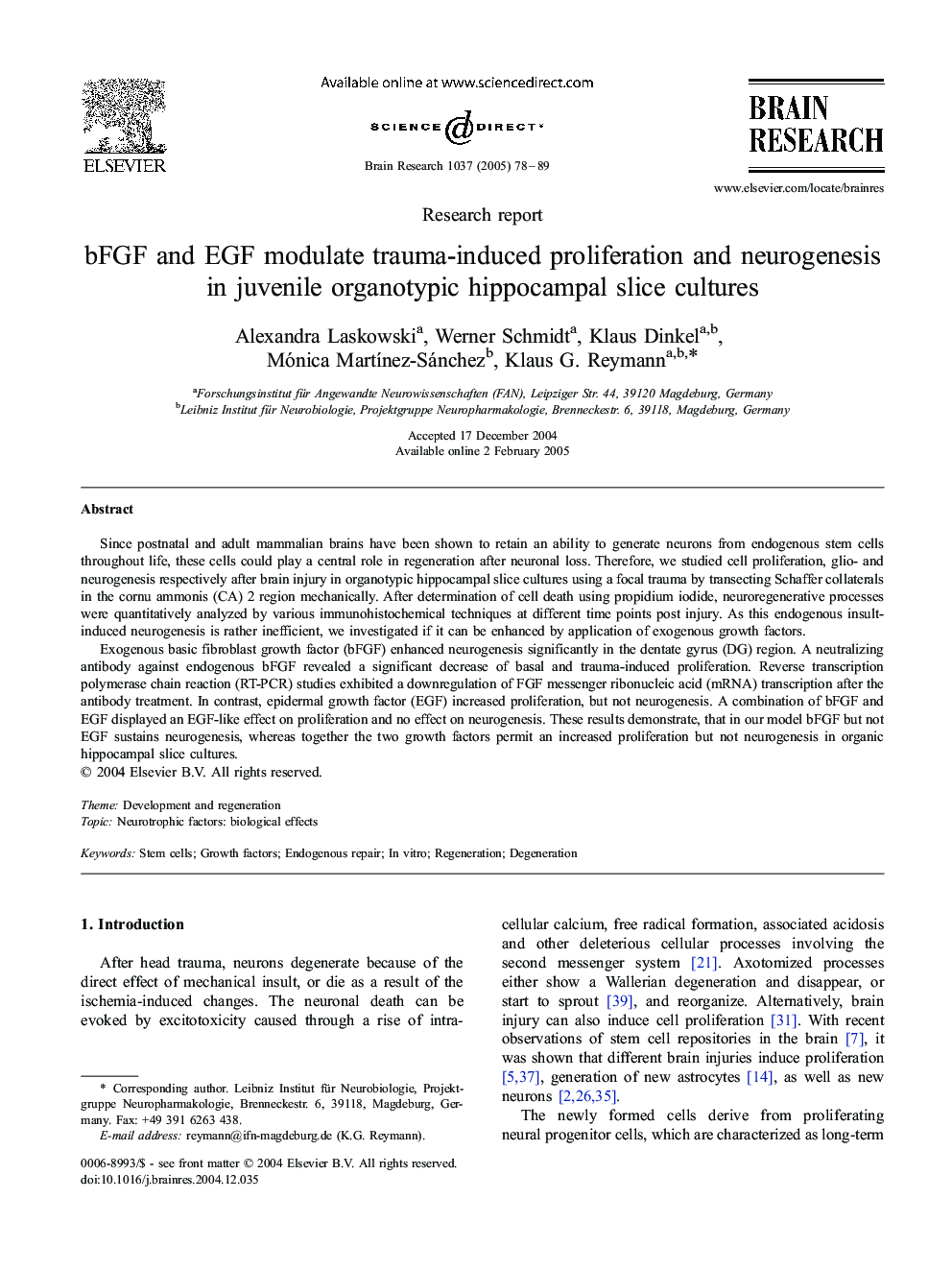| Article ID | Journal | Published Year | Pages | File Type |
|---|---|---|---|---|
| 9416641 | Brain Research | 2005 | 12 Pages |
Abstract
Exogenous basic fibroblast growth factor (bFGF) enhanced neurogenesis significantly in the dentate gyrus (DG) region. A neutralizing antibody against endogenous bFGF revealed a significant decrease of basal and trauma-induced proliferation. Reverse transcription polymerase chain reaction (RT-PCR) studies exhibited a downregulation of FGF messenger ribonucleic acid (mRNA) transcription after the antibody treatment. In contrast, epidermal growth factor (EGF) increased proliferation, but not neurogenesis. A combination of bFGF and EGF displayed an EGF-like effect on proliferation and no effect on neurogenesis. These results demonstrate, that in our model bFGF but not EGF sustains neurogenesis, whereas together the two growth factors permit an increased proliferation but not neurogenesis in organic hippocampal slice cultures.
Keywords
Related Topics
Life Sciences
Neuroscience
Neuroscience (General)
Authors
Alexandra Laskowski, Werner Schmidt, Klaus Dinkel, Mónica MartÃnez-Sánchez, Klaus G. Reymann,
